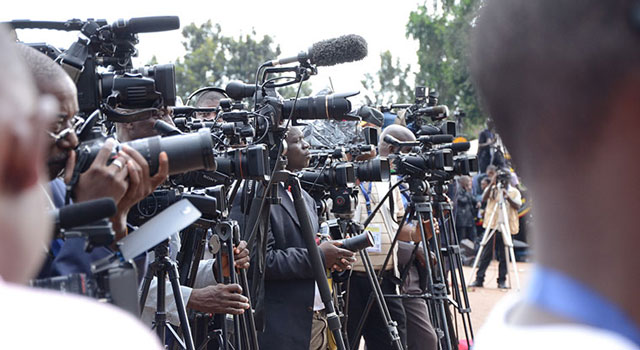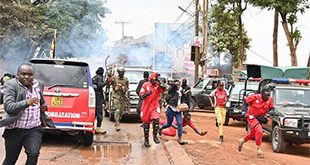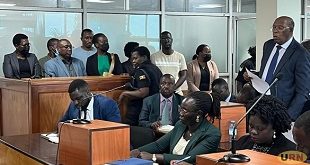
Kampala, Uganda | THE INDEPENDENT | The Uganda Editors Guild, an umbrella body that brings together Editors, senior journalists and Scholars of Journalism, has petitioned High Court in Kampala challenging the accreditation of journalists by the Media Council of Uganda.
The council issued a directive on December 10, 2020, requiring all Journalists to register within seven days, for accreditation to cover the forthcoming general election and other stat events. Subsequently, the Uganda police issued a notice indicating that the police and sister security agencies shall recognize only those persons on the Media Council register during the coverage of political campaigns and other electoral events.
According to Mr Paulo Ekochu, the Council chairperson, criminal charges will be slapped on any media houses, both local and international, including freelance journalists who fail to register, a move which came in the middle of campaigns ahead of the 14 January 2021 general election.
But the Guild, together with the Centre for Public Interest Law Limited, is seeking an order quashing the registration and accreditation process for being illegal, and irregular, for lack of a fully constituted Media Council and lack of quorum.
The two bodies are also seeking an order to restrain the media council of Uganda and any other regulatory agents of government and security organs from illegally and irrationally curtailing media and press freedom of journalists to cover the 2021 general election and other state events.
They further argue that the registration of journalists by the Media Council of Uganda, without an operational National Institute of Journalists of Uganda to enrol journalists under the Press and Journalist Act, is illegal. According to the act, the Media council is only supposed to issue practising certificates to journalists who have presented certificates of enrolment issued by the National Institute of Journalists of Uganda (NIJU)” and paid the prescribed fees.
Daniel Kalinaki, the Interim Chairperson of the Editors Guild states that the directives by the Uganda Media Council are ill-intended with the effect of suppressing and illegally curtailing media and press freedom and independence, as well as constitutionally guaranteed freedoms of expression, access to information and the practice of journalism as a profession.
“The impugned directive will have the effect of fueling the brutality of the security agencies and malicious prosecution against Journalists in the guise of enforcing and implementing the impugned directive, further curtailing and unreasonably restricting constitutionally guaranteed freedoms and rights”, Kalinaki said in an affidavit.
He adds that although the council published registration guidelines on its website, they did not state the required procedure, documents and requirements for registration and that the entire process was contrary to the guidelines enshrined under the Press and Journalist Act.
According to Kalinaki, if the court doesn’t block the implementation of the said directive, Journalists freedoms are going to be curtailed and editorial powers to choose and assign Journalists to cover different events including the elections across the country will be taken away.
“I’m aware that editors severally rely on freelancers to gather and report on different events including elections. The impugned directives make it difficult for media houses to rely on freelancers to report the electoral process as it criminalises journalism without a special pass”, Kalinaki adds.
Additionally, the supportive affidavit by the Acting Executive Director of Public Interest Law Limited Francis Alfonse Obonyo shows that the Press and Journalist Act gives the mandate to enrol Journalists to the membership of the National Institute of Journalists of Uganda and to issue a certificate of enrollment before they are registered by the Media Council.
But his evidence indicates that the Institute is also defunct, unconstitutional and non-operational. Without this, Obonyo argues that it’s impossible to register Journalists and any attempt at it would constitute illegality. The council is supposed to have two representatives from the NIJU.
Recently, several national and international scholars have since come out to criticise this directive arguing that it is meant to curtail freedoms for media wondering why it came towards elections.
The Media Council was established under Section 8 of the Press and Journalist Act, Cap 105, to among other things, “…regulate the conduct and promote good ethical standards and discipline of journalists arbitrate disputes between the public and the media and the State and the media exercise disciplinary control over journalists, editors, and publishers and promote, generally, the flow of information.
********
URN
 The Independent Uganda: You get the Truth we Pay the Price
The Independent Uganda: You get the Truth we Pay the Price


